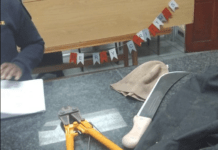
After graduating from South African universities, many young individuals may face challenges in finding employment due to high levels of unemployment, poverty, and inequality in the country. While the government’s role is crucial, it’s important to note that addressing these issues requires a comprehensive approach involving multiple stakeholders. Here’s a ten-point plan to assist new graduates in navigating the post-graduation period:
[optin-monster slug=”o1oltbelggnq0q5uohhx” followrules=”true”]
Enhance Career Services: Strengthen career counseling and guidance services at universities to provide tailored support for graduates, including job search strategies, resume building, and interview preparation.
Industry-Academia Collaboration: Foster closer ties between universities and industries to align academic programs with the needs of the job market. Encourage internships, apprenticeships, and cooperative education programs to provide practical skills and work experience.
Entrepreneurship Support: Establish entrepreneurship programs and incubation centers to encourage and support graduates in starting their own businesses. Provide mentorship, training, access to funding, and networking opportunities for aspiring entrepreneurs.
Government Support Programs: Advocate for the government to implement targeted initiatives to address youth unemployment, such as subsidized employment schemes, tax incentives for companies hiring graduates, and financial support for startups.
Skills Development: Promote continuous skills development by offering short-term courses, workshops, and certifications that align with emerging industry trends. Encourage graduates to upskill and reskill to enhance their employability.
Networking and Alumni Engagement: Facilitate networking opportunities for graduates through alumni associations, industry events, and online platforms. Encourage graduates to leverage their networks for job referrals, mentorship, and career advice.
Access to Information: Improve the dissemination of job opportunities, internships, and training programs through centralized online portals or platforms. Ensure that graduates have easy access to information about available positions.
Financial Literacy and Support: Provide financial literacy training to equip graduates with essential money management skills. Explore options for low-interest loans, grants, or scholarships to support graduates in pursuing further education or starting businesses.
Public-Private Partnerships: Foster collaborations between the government, private sector, and civil society organizations to create job opportunities and develop sustainable solutions for youth unemployment. Encourage businesses to participate in mentorship programs or provide job-shadowing opportunities.
Soft Skills Development: Offer workshops and training programs to enhance graduates’ soft skills, such as communication, teamwork, problem-solving, and adaptability. These skills are valuable in the workplace and can increase employability.
Monitor and Evaluate: Establish a monitoring and evaluation framework to assess the effectiveness of these initiatives and make necessary adjustments. Regularly collect data on graduate employment rates, job placements, and the impact of support programs to ensure their relevance and success.
While the government should play a significant role in supporting new graduates, it’s crucial to foster collaboration among all stakeholders, including universities, private sector employers, NGOs, and the graduates themselves. By implementing this comprehensive plan, South Africa can better equip its graduates with the necessary tools, opportunities, and support to navigate the challenging employment landscape and contribute to reducing unemployment, poverty, and inequality.







